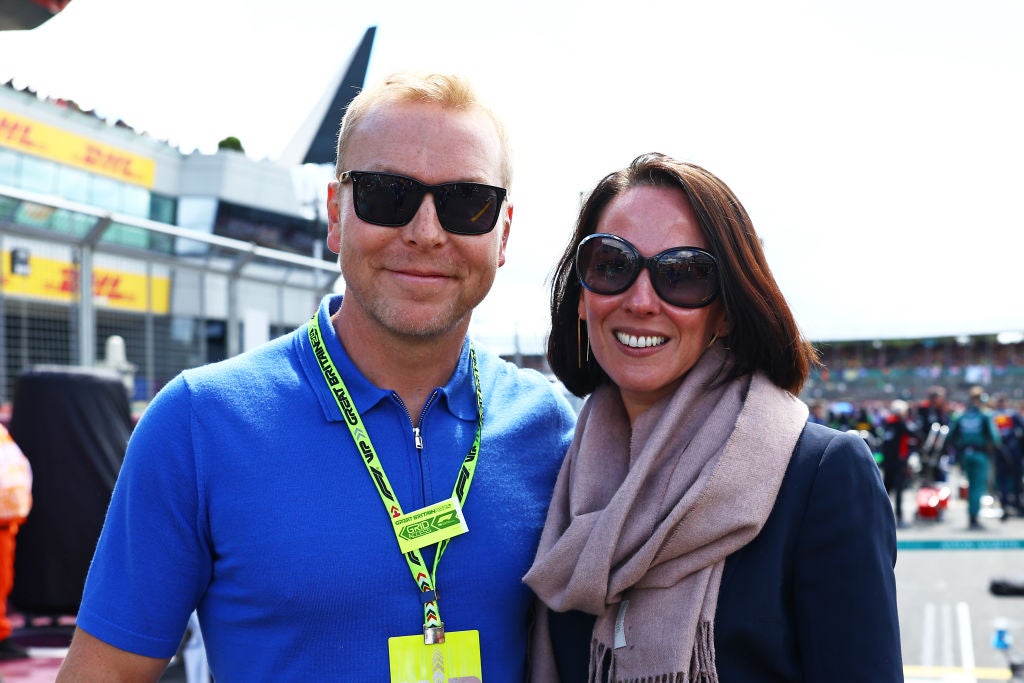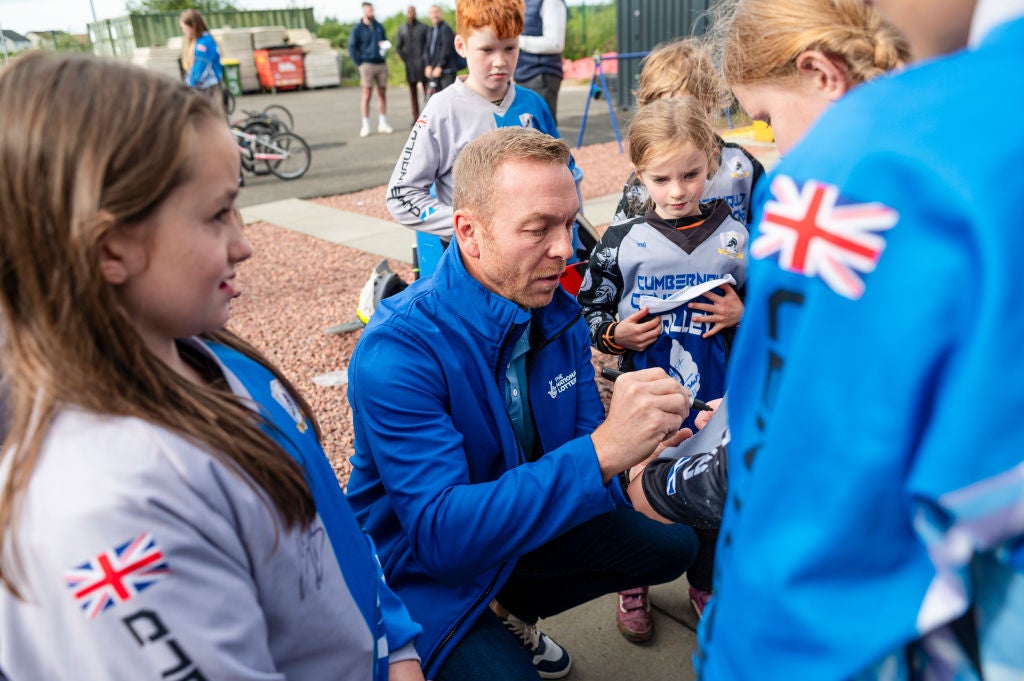Why Sir Chris Hoy’s terminal cancer diagnosis hasn’t changed an Olympic champion
The six-time gold medallist has been given just two to four more years to live – but the inspirational figure has responded with a remarkably positive outlook
“I don’t know what the next ten months is going to bring. It’s not about the big picture, it’s about saying you will hit every day the best you can within what you can control.”
These were thoughts of Sir Chris Hoy ahead of the 2012 Olympic Games, explaining his process to try and replicate the enormous success of three gold cycling medals at Beijing four years earlier. Of course, Hoy went on to win another two in London, making him at the time Britain’s most successful Olympian.
Remarkably he is now applying that same outlook to the devastating news that he has only two to four years to live after being diagnosed with terminal cancer.
Sir Chris is determined to use the iron mindset that allowed him to make history on the track to similarly cope with his illness. While the news of six-time gold medallist Hoy’s diagnosis may have shocked many, the nature of the Olympic icon’s reaction and his approach to the situation should not.
“The fear and anxiety, it all comes from trying to predict the future. But the future is this abstract concept in our minds. None of us know what’s going to happen. The one thing we know is we’ve got a finite time on the planet,” he said in his interview this week with the Sunday Times, explaining precisely why, despite the clearly terrible nature of the news, he still holds true to his ability to have a plan and run it through, to the best of his ability – and to enjoy it.
“As unnatural as it feels, this is nature,” Hoy further said. “You know, we were all born and we all die, and this is just part of the process. Hand on heart, I’m pretty positive most of the time and I have genuine happiness.
“This is bigger than the Olympics. It’s bigger than anything. This is about appreciating life and finding joy.”
And so it is no surprise that his words, his message of hope and of positivity, have been hailed as momentous by significant names, quick to both offer thoughts to Hoy and his family, but also to cite how he may help others, whether affected by cancer or otherwise. Health secretary Wes Streeting called Hoy “inspirational”, while fellow Olympian Mark Cavendish called him a “hero of a human being”.
“The class and humility with which he tells this story is truly humbling,” presenter and broadcaster Jacqui Oatley added. And the outpouring of goodwill towards Hoy - and wife Sarra, who has “very active and aggressive” multiple sclerosis - has come from the wider world beyond renowned faces, too.


For so long seen as an athlete to look up to in performance terms – as well as those Olympic golds he reached double figures atop the podium at World Championships and has two golds from Commonwealth Games too – Hoy has also been able to permeate the public consciousness as an ambassador for mental health, among other things.
As a winner of both the Sports Personality of the Year award and a Lifetime Achievement of the same, he has long been at the forefront of the intersection of sport and inspiration.
Fitting, perhaps, given his ability to ensure his own mind is as well-prepared for every challenge as possible, that he would want to help others do the same.

And while candidly admitting there have been, and will be, further struggles, Hoy is focused only on what he can control - primarily enjoying what life he has.
“Most of the battle for me with cancer hasn’t been physical. For me, it has been in my head,” he said. “So what I’ve come round to thinking is, why spoil that time? Crack on and enjoy and be grateful for what you do have. I’m not trying to pretend that every day is amazing. But I have genuine moments of joy. I have laughter. I’m not thinking about it all the time. I’m back to my old self.”
And of course, creating a new challenge is part of that. The entire perception of what stage four of cancer is, and means, can be changed, he believes: “Stage 4’s not just, right, this is the end of your life. There’s more to be lived,” he said.
An annual “Tour de 4” charity bike ride is planned to highlight how much can still be achieved. Given his uncanny ability to succeed in his own objectives and in inspiring others, it would surprise nobody to see Hoy’s next contribution being another successful addition to his legacy.
Join our commenting forum
Join thought-provoking conversations, follow other Independent readers and see their replies
Comments
Bookmark popover
Removed from bookmarks